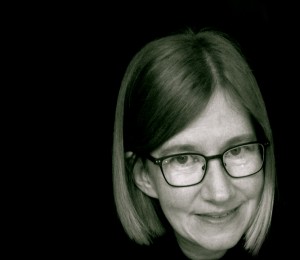
Annie G. Rogers, Ph.D., is Professor of Psychoanalysis and Clinical Psychology at Hampshire College and Co-Director of its Psychoanalytic Studies Program. She is Analyst Member and Faculty at the Lacanian School of San Francisco and Associate Member of the Association for Psychoanalysis & Psychotherapy in Ireland. Dr. Rogers has a psychoanalytic practice in Amherst, Massachusetts. A recipient of a Fulbright Fellowship at Trinity College, Dublin, Ireland; a Radcliffe Fellowship at Harvard University; a Whiting Fellowship at Hampshire College; and an Erikson Scholar at Austen Riggs; she is the author of A Shining Affliction (Penguin Viking, 1995) and The Unsayable (Random House, 2006), in addition to numerous scholarly articles, short fiction, and poetry. Her most recent book, Incandescent Alphabets: Psychosis and the Enigma of Language, is forthcoming by Karnac Books in 2016.
What I do: Psychoanalysis, Printmaking, Poetry, Teaching
“Everywhere I go I find a poet has been there before me.”
Analysis. I sit behind an analysand, listening, but what I hear vanishes over the days, weeks, months, years, of the work, only to reappear at unexpected moments in the treatment. What reappears comes back as a form of speaking: the analysand says something and there is a link to what was said before- two years, five years ago. I speak and what I say links to something I have wondered about for a long time but never said. Something I have heard becomes audible to the analysand then, open to question, revision, erasure and writing over, a layering of interpretation.
I see that this work of analysis infiltrates everything I do: printmaking, poetry, and teaching; it works in me both inside the consulting room, and beyond it.
As a printmaker, I draw a map of an enclosure in an ancient Chinese city, erase it, simplify it, add my own marks, then transfer the drawing onto a copper plate, etch the lines with a needle, dip copper into acid, ink the plate, wipe it, print it, print again. There is an image, iterations of a map, and ghostly semblance, a series that conjures what I am after: an invisible history made visible within the work.
Poetry erupts from silence into precise language that carries as music, musical sense and sound: marks and erasures break here/ no, here/ cut the line to say impossible things. Depending on where the line ends, I write, erase, revise, listen again. This process leads me to hear things that I would never otherwise hear, and to follow music in language.
Yet only with psychoanalysis do I consider the question of a transmission. Truth is, perhaps, a moment that cannot lay a ghost to rest. What is this insistence, and what is ghostly about it? Truth leaves a trace, a trail, through the effects of speaking, and psychoanalysis, based on speaking, becomes a way to transmit truth. The question is what is most alive in the unconscious in our time, what calls out for new formulation and response? Psychoanalysis is a radical practice, making a place for what has been outside of knowing, of language, of history, and what is even think-able. My students ask questions I do not ask. I follow them into the future of psychoanalysis.
